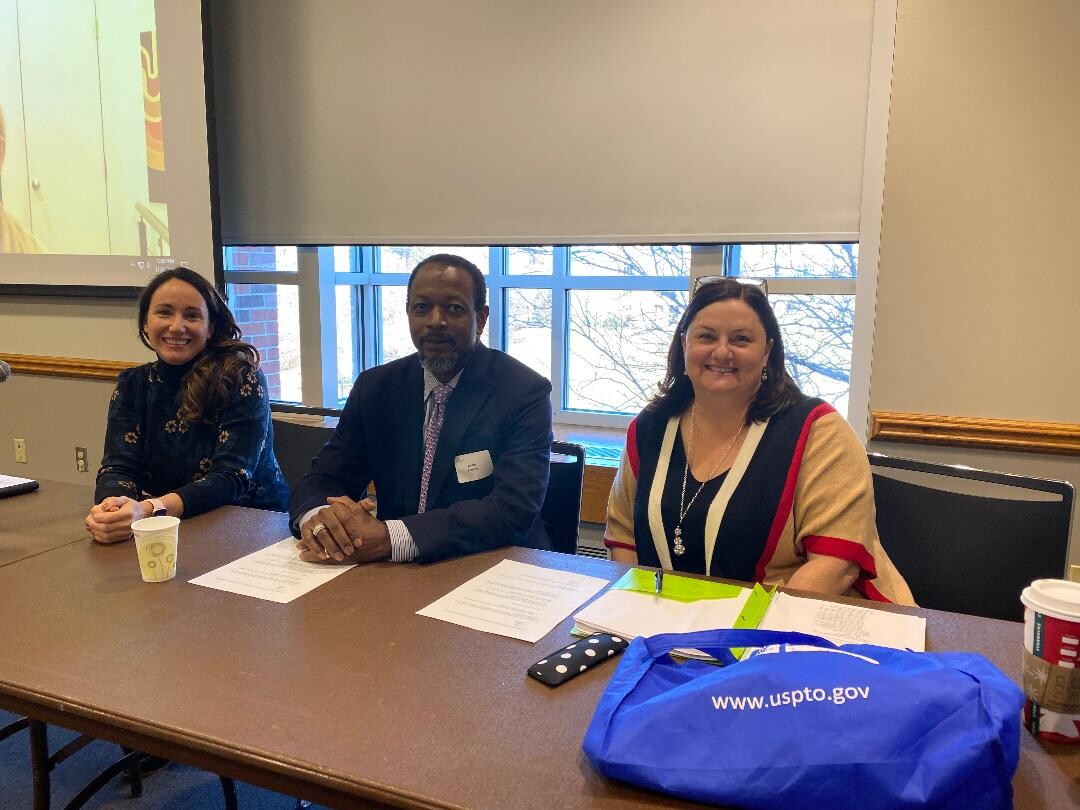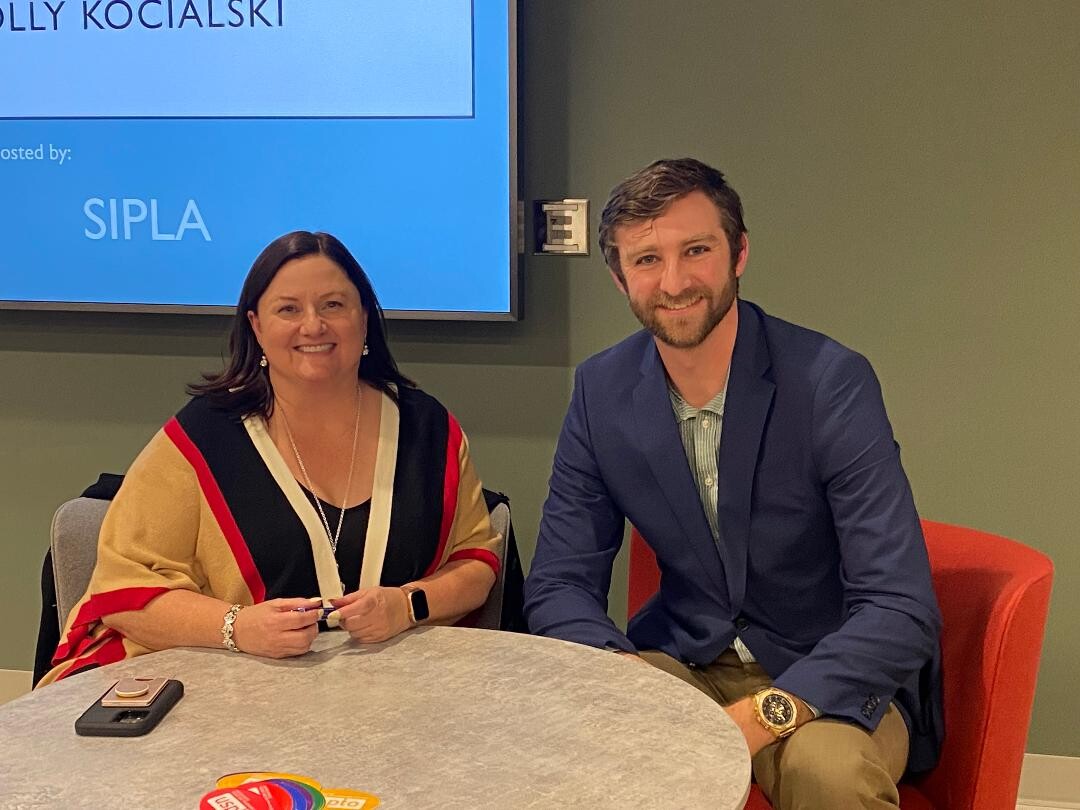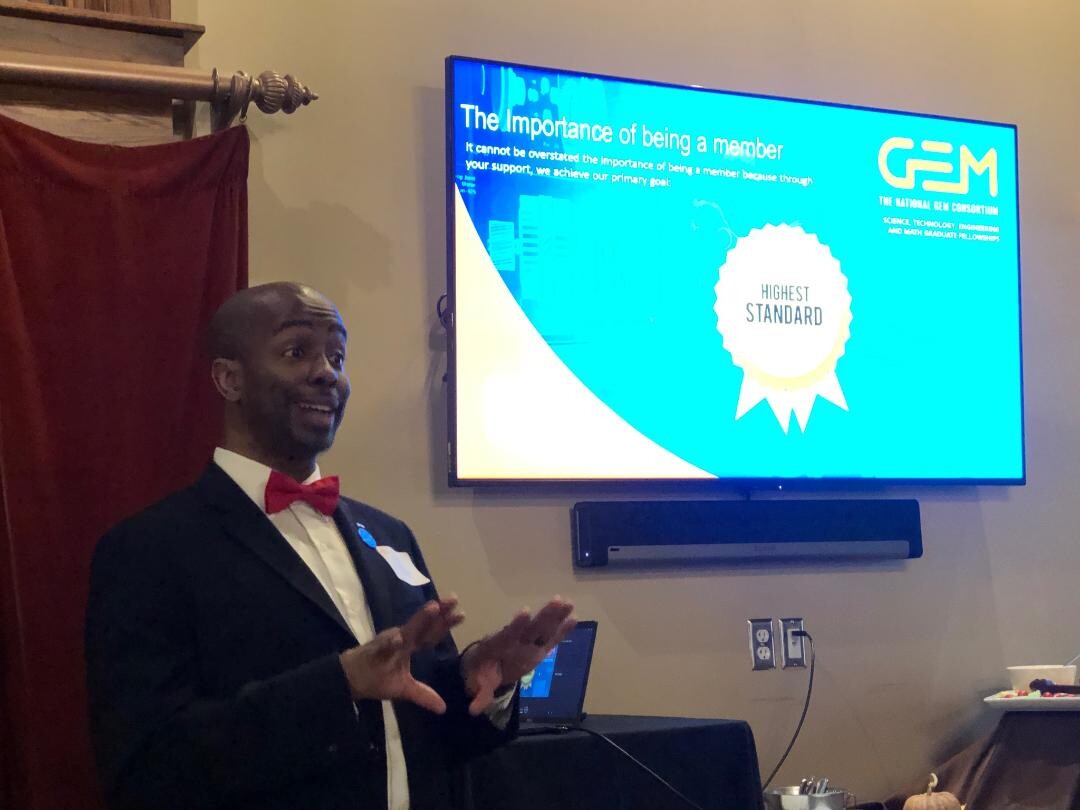
Inclusiveness — equal treatment and a welcoming environment for all, regardless of age, race, ethnicity, gender or socioeconomic status — isn’t just a nice idea in the tech space. It’s a necessity for businesses, inventors and academics who want to stay relevant.
At a packed panel moderated by Cheryl Horst, associate director and IP counsel for NUtech Ventures at the City Campus Union on Dec.1, Latane E. Brackett III, principal manager of innovation programs at GEM Fellowship; Molly Kocialski, regional director for the Rocky Mountain office of United States Patent and Trademark Office; and Morgan Scheurs, policy director for Invent Together, discussed how to ensure that diverse inventors are seen and heard in the technology transfer field.
According to Invent Together’s statistics, women comprise 50% of the U.S. population, but only 13% of inventors listed on patents are women. At the current rate of progress, women won’t reach parity in patenting until 2092. Only about 2% of venture capital goes to women.
“The statistics are sobering,” Kocialski said. “One in 18 jobs is a STEM job. Women hold 28% of these jobs but accounted for just 13% of all patents in 2019. If women and people of color participated in inventions at the same rate as white men, we could boost the economy by $1 trillion or more.”

People of color are significantly underrepresented among patent owners. The percentage of Black and Hispanic college graduates who apply for and hold patents is about half that of white graduates. Notably, patenting activity by Black inventors peaked in 1899 and has not recovered, making it essential for the industry to work hard to make sure these voices are heard.
Brackett spoke of a critical program aiming to reverse those inequities, the GEM fellowship program, of which NU is a part. The mission of the National GEM Consortium is to enhance the value of the nation’s human capital by increasing the participation of underrepresented groups — including African Americans, Native Americans and Hispanic Americans — at the master’s and doctoral levels in engineering and science. GEM recruits high-quality underrepresented students looking to pursue master’s and doctoral degrees in applied science and engineering and matches their specific skills to the specific technical needs of GEM employer members, who include NASA, Space X, 3M and Apple. More information about the fellowship program can be found here.
Brackett also believes that demystifying the process for inclusive innovation is critical.
“We need to form intentional collaborations and ask how we can work together toward the same goal,” he noted, adding that networking is a key step in achieving this goal. “Don’t leave any room without introducing yourself to someone new.”
Scheurs promoted a valuable and free training program online for aspiring inventors, The Inventor’s Patent Academy. This free, one-of-a-kind, e-learning course aims to help people understand the patenting process and get them ready to apply for their own patent. It also explores challenges inventors may face along the way — particularly those that typically affect women, people of color, veterans, low-income individuals, people with disabilities, and other underrepresented inventors — and provides advice to overcome them. Throughout the program, participants will hear from actual inventors about the challenges they faced and their successes on their journeys to bring ideas to life.

“Startups with patents employ an average of 16 more employees after five years than those without patents,” Scheurs said. “We’re committed to teaching the process so everyone can succeed.”
More information on the program can be found here.
Later in the day, two additional related events were held. A networking reception at the Mill on Nebraska Innovation Campus allowed the speakers to continue the conversations begun during the panel and meet with local businesses with the aim of recruiting company partners for the GEM Fellowship. While on East Campus, USPTO’s Kocialski sat down with members of the Student Intellectual Property Law Association. SIPLA and NUtech Ventures co-hosted the event, held at McCollum Hall. SIPLA president Brady Stuhmer, also a a NUtech commercialization analyst intern, joined Kocialski for the presentation.
A lively discussion on the best methods of protecting intellectual property, including floating the idea of a trademark bar in addition to the current patent bar, ensued. While Kocialski didn’t pull any punches about the difficulty of the patent bar — on average, less than half of those who sit for it pass it on the first try — she stressed that the continued demand for patents and trademarks underscores the ingenuity of American inventors and entrepreneurs, and while artificial intelligence can help simplify certain processes, there will always be a need for qualified attorneys in this area of practice.

Kocialski added that the USPTO furthers effective IP protection for U.S. innovators and entrepreneurs worldwide by working with other agencies to secure strong IP provisions in free trade and other international agreements. The agency advises the president of the United States, the secretary of commerce, and U.S. government agencies on intellectual property. It also provides training, education, and capacity building programs designed to foster respect for IP and encourage the development of strong IP enforcement regimes by U.S. trading partners.
The University of Nebrask–-Lincoln’s new membership in the National Science Foundation’s Great Lakes Innovation Corps Hub (known colloquially as I-Corps) will also play a key role in driving collaboration. NU is one of 12 universities in eight states in the Great Lakes Hub, which engages academic scientists and engineers by offering world-class educational programs that accelerate the transfer of cutting-edge research into commercial success. For the past three years, NUtech Ventures and a variety of partners have offered a similar initiative called the Nebraska Introduction to Customer Discovery program, which is designed to train researchers pursuing technology commercialization.







